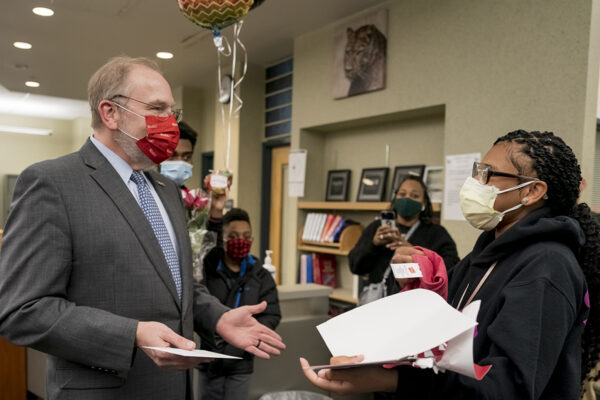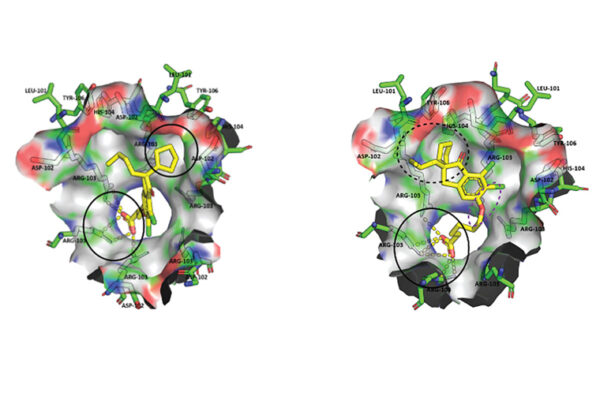For Washington University cardiologist Sumanth Prabhu, MD, the stethoscope is not only indispensable as a diagnostic tool but presents powerful symbolism. He sees it as a channel that connects the patient to the clinician, a conduit through which a current of information flows from the former’s body to the latter’s brain.
“When you’re a trainee, there’s this tendency to use a stethoscope strictly as a tool,” said Prabhu, MD, the Tobias and Hortense Lewin Distinguished Professor of Cardiovascular Diseases and director of the Cardiovascular Division. “You’re trying to master what your mentors are telling you about listening to the heart. But as you become a more experienced clinician, you learn how to use the exam, how to use your patient interactions and how to integrate these together. This connection is something that you never stop learning about.”
Prabhu, who also serves as cardiologist-in-chief at Barnes-Jewish Hospital, believes that the interactions he has had with patients have been integral to shaping his work as a researcher studying heart failure, a condition in which the heart doesn’t pump blood as it should. Most recently, his lab at Washington University School of Medicine in St. Louis has concentrated on the underlying reasons behind, and triggers for, inflammation and immune cell activation in heart failure, and on finding new therapeutic approaches to alleviate inflammation and promote cardiac repair.
“We see many patients with inflammatory responses, for example, in heart failure,” Prabhu said. “In the laboratory, we’ve studied how modulation of inflammatory responses can set the failing heart along a path of improvement and recovery. The hope is that we can eventually introduce immunotherapeutics into the clinical management of patients with heart failure.”
Even in his teenage years, Prabhu knew that he wanted to pursue medicine, mainly because the science intrigued him. However, it wasn’t until the 1980s, when he enrolled in medical school and started doing clinical rotations, that the people side of medicine drew him in.
During this time, he found himself increasingly drawn to cardiology, in large part due to the personal attention and interaction required to assess patients and their hearts. Although the physical exam is not as precise as, for example, a cardiac MRI to evaluating heart function, it yields important information that allows clinicians to interact and bond directly with patients. Prabhu began to enjoy and value that connection.
He remained a scientist, though. Prabhu went on to develop a research program in heart failure at the University of Texas Health Science Center at San Antonio and then the University of Louisville School of Medicine, after which he became chief of the cardiology program at the University of Alabama at Birmingham.
With an ever-growing expertise in cardio-immunology, Prabhu arrived in St. Louis in 2021, when he was named director of the School of Medicine’s Cardiovascular Division.
At what point did you realize that you wanted to go into the medical field?
I’m the first doctor in my immediate family, but I realized I was interested in medicine very early on, when I was in high school. I think that when you’re young, a lot of that interest is driven by the scientific aspect of the field and the cool factor of what’s possible. As you move forward, it’s really the people aspect that becomes most important. The combination of that scientific perspective as well as the personal interaction with patients — both of those things were very appealing to me.
What drew your interest to cardiology?
Even as a medical student, I was just fascinated by cardiology. I went to medical school in the mid-1980s, when the field was seeing an explosion of new treatments and approaches. There were a lot of advances with medical therapy, and it was a field that was quantitatively very precise. It was all very exciting.
In cardiology, you can be uniquely involved with both science and people in very meaningful ways. It’s very individualized, I think. I was drawn to it very early on.
Read the full profile and Q&A on the School of Medicine website.



